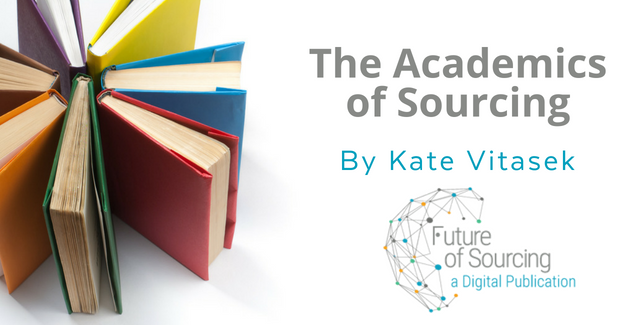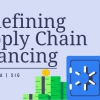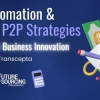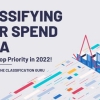This article originally appeared in Outsource Magazine Issue #23 Spring 2011
Leading academics charted a path that challenges the conventional definition of winning. Smart companies are applying these concepts, showing that win-win thinking is not just something nice to say: it’s smart business – and really is beautiful…
No one plays to lose in life or in business. You’ve all heard the clichés and their infinite variations: “Win at all costs.” “Winning isn’t everything, it’s the only thing.” “Losing is for losers.” “Nice guys finish last.” You get the idea.
Smart companies are starting to challenge the winner-takes-all approach by applying what is popularly referred to as win-win thinking. Now I know that “win-win” itself is a perhaps an overindulged buzzword, used by companies indiscriminately no matter the true nature of the deal at hand. But companies like Microsoft and Accenture have come to realise that it’s not just something nice to say; applying win-win thinking can bring real value and bottom-line benefits.
For Microsoft, these benefits are the kind that Henric Häggquist, Sr. Director of Fin Ops Global BPO Management, referred to as “transformational” when the team accepted the International Association for Outsourcing Professionals’ (IAOP) GEO Award for Innovation. The award is given to a company that has recently implemented either a new outsourcing relationship or new outsourcing approach that is groundbreaking and worth special attention by other organisations.
Microsoft and Accenture have learned that winning is about forging collaborative, innovative and flexible performance-based relationships. Researchers at the University of Tennessee and I have come to describe this approach as Vested Outsourcing because companies shun the conventional short-term, transaction-based model for outsource agreements in favor of working together to reach mutually beneficial goals – which I refer to as Desired Outcomes. While many companies are saying win-win, few in my opinion really adopt true collaborative relationships that can drive the kind of innovation companies are yearning for. That is because business people say partnership, but the legal and contracting people rarely contract for partnership. Case in point: how can you have a real partnership when your contract has a 30-day term for convenience?
Win-Win Thinking: It’s Not Only Real, It is Really Beautiful
Work by leading academics has proven win-win approaches are not only real – they are really beautiful. In fact, there is an entire discipline of economics devoted to win-win thinking known as behavioural economics or game theory. Technically speaking, behavioural economics is the study of incentives and strategic interactions. Its application, dating back more than 70 years, is also popularly referred to as game theory because it attempts to model human behaviours, especially when there is an incentive at stake. Specifically, game theory attempts to model how an individual’s success in making a strategic decision depends on the choices of others.
Win-win thinking came into the general public’s consciousness with the release of the film A Beautiful Mind, which profiled the genius of mathematician John Nash. If you’ve seen the film, think back to the bar scene where Nash and his friends have their sights set on the same blonde woman, during which Nash gets a “eureka moment.” In the scene, Nash says, “If we all go for the blonde, we block each other, not a single one of us is going to get her. So, then we go for her friends, but they will all give us the cold shoulder, because nobody likes to be second choice. But what if no one goes for the blonde? We don’t get in each other’s way, and we don’t insult the other girls. It’s the only way we win (and go home with a girl).” He goes on to say: “The best result would come from everyone in the group doing what’s best for himself, and the group.”
Deeply rooted in mathematics, Nash published his theory of equilibrium in 1950. Nash went on to devote his life to studying the concept of win-win thinking and in 1994 he won a Nobel Prize that he shared with John C. Harsanyi and Reinhard Selten. After Nash won the Nobel Prize, the study of game theory and win-win thinking really took off. Modern game theorists have taken the concepts of game theory to new levels by applying the concepts to cooperative, or win-win, games.
So far, eight Nobel Prizes have been awarded to Game Theorists. In short, they have proven that win-win thinking is not just a buzzword. It is real, and it is really beautiful.
Playing the Game
There are two types of games that can be played: zero-sum games and non-zero sum games. In the case of zero-sum games the size of the pie is fixed. For one participant to get more, other participants get less. In non-zero sum games, the size of the pie is not fixed; therefore everyone can do better, or much worse, depending on their interactions.
One of the core principles of game theory that Nash made famous – and the one that’s of particular interest to Vested Outsourcing – is the concept of equilibrium. Equilibrium is also referred to a solution concept. In essence, applying game theory involves developing a strategy that will optimise the payout for all players – not just transfer part of a fixed payout. In other words, the power of partnerships, relationships and collaboration is not to accept the status quo, but to look for ways to change the game by playing together to create value that currently does not exist for either party.
For example, can a call centre help drive customer satisfaction or customer loyalty? Or how can a supply chain service provider like Unipart Logistics help Jaguar move from worst to first in customer satisfaction rankings of service parts maintenance? The duo did just that over the last three years, as ranked by JD Power and Associates.
At the heart of game theory is the statistical rigour that illustrates what can happen when people set out to develop a win-win solution: both parties can indeed go home winners.
Robert Axelrod’s work helped put the concept of win-win game theory on the map in his book The Evolution of Cooperation. The book describes computer games with participants from around the world, focusing on determining how individuals in groups are likely to interact with others act in a competitive situation. These computer game simulations prove that when individuals cooperate they came out better than when they do not cooperate.
The lessons are simple but very profound: playing a game together to achieve a mutual goal is always better than playing it with self-interest in mind. Working together towards a win-win strategy is always better than a win-lose strategy aimed at promoting self-interest.
The 21st Century Definition of Winning is Collaboration
So how can you apply these lessons to an outsourcing situation? One of the most common outsourcing problems occurs when companies fall into the conventional trap of beating up their suppliers on price. They wrongly assume that they are operating in a zero-sum game and that the only way to make money is to extract it from the supplier base. The total gains and losses will add to zero. One side wins, one side loses.
This zero sum-game attitude is typical in conventional outsourcing negotiations. And that is why too many deals fail to deliver the benefits that are possible for all parties. This is particularly true when it comes to driving innovation. Think back to my point about having a contract with a 30-day term of convenience. What supplier in its right mind would invest its own capital to develop innovations for a client’s business if there is the risk of being fired without cause?
A true win-win approach requires effort and commitment by all parties. “Getting to We” is the essential precondition – the philosophical mantra, if you will – that forms the architecture for a collaborative, trusting endeavour while keeping narrow, win-at-all-costs urges at bay. It is really not possible to have a successful Vested Outsourcing agreement and framework in place without first committing to a “What’s in it for We” – or WIIFWe – approach.
The problem is that businesspeople often have a blind spot when it comes to the very notion of collaboration. Many organisations firmly believe, and even boast, that they have solid partnerships in place. They brag about “partnership” and “win-win,” but my experience and research has found that individuals and companies often revert to selfish “What’s in it for Me” (WIIFMe) behaviours when they sit down at the negotiation table. This is a natural instinct, seen all the time in almost every human endeavour. Many organisations train procurement and sales professionals in the art of negotiation tactics designed to give their organisation leverage and a winning edge. It is exceedingly tough to change a mind-set to WIIFWe.
In order to be a true partner, the service provider and the company outsourcing must have a vested interest in each other’s success. This starts with a mutual commitment to each other – and each other’s success – over the long haul. The mentality must shift from an “us-versus-them” to a “we” philosophy – and that’s where game theory provides the foundation for that essential leap.
The bottom line is that behavioural economics is real, and powerful. Outsourcing contracts written in the zero-sum mind-set are flawed structures because they create inefficient contractual agreements and uneasy relationships. Once this problem is recognised, smart business leaders will begin to think strategically about designing a win-win outsourcing solution with their most strategic suppliers so that all parties can work together for a better overall solution.
Together drives Transformation
I believe “winner-take-all” thinking is fast becoming passé, especially in light of recent economic and financial history. I also predict the 21st century definition of winning in a the world of outsourcing will be vested, and will come when both parties create true collaborative business agreements where they have a vested interest in each other’s success.
I encourage you to learn the new game of outsourcing by joining us at the University of Tennessee for one of our open enrollment classes. You can learn more by visiting our dedicated website at www.vestedoutsourcing.com and signing up for one of our classes at www.vo.utk.edu










